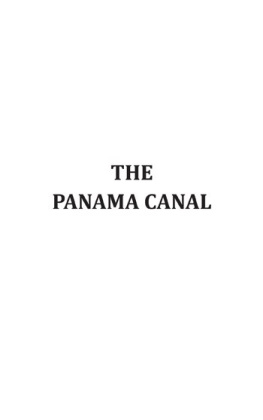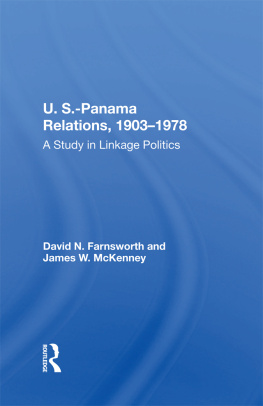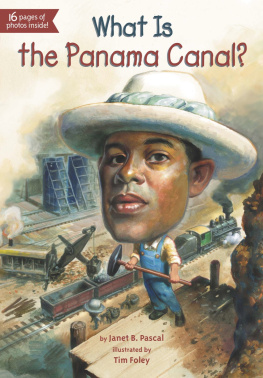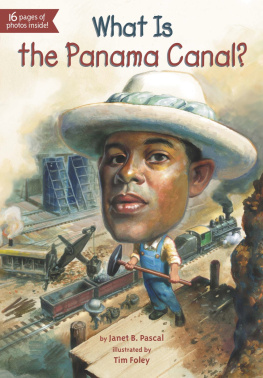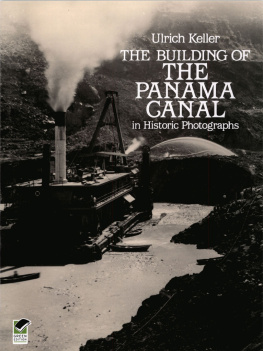Appendix A
The Monroe Doctrine
The Monroe Doctrine was not a separate paper, a Statement in itself, but only three paragraphs contained in President Monroes seventh annual message to Congress. These paragraphs, though they pertain to the same subjectthe undesirability of having any European nation colonizing in the Americasare not even connected. Together they constitute less than one-tenth of the whole message, most of which is concerned with other, lesser matters. They follow:
At the proposal of the Russian Imperial Government, made through the minister of the Emperor residing here, a full power and instructions have been transmitted to the minister of the United States at St. Petersburg to arrange by amicable negotiation the respective rights and interests of the two nations on the northwest coast of this continent. A similar proposal had been made by His Imperial Majesty to the Government of Great Britain, which has likewise been acceded to. The Government of the United States has been desirous by this friendly proceeding of manifesting the great value which they have attached to the friendship of the Emperor and their solicitude to cultivate the best understanding with his Government. In the discussions to which this interest has given rise and in the arrangements by which they may terminate the occasion has been judged proper for asserting, as a principle in which the rights and interests of the United States are involved, that the American continents, by the free and independent condition which they have assumed and maintain, are henceforth not to be considered as subjects for future colonization by any European powers. (The Writings of James Monroe, Volume VI, page 328.)
It was stated at the commencement of the last session that a great effort was then making in Spain and Portugal to improve the condition of the people of those countries, and that it appeared to be conducted with extraordinary moderation. It need scarcely be remarked that the result has been so far very different from what was then anticipated. Of events in that quarter of the globe, with which we have so much intercourse and from which we derive our origin, we have always been anxious and interested spectators. The citizens of the United States cherish sentiments the most friendly in favor of the liberty and happiness of their fellow-men on that side of the Atlantic. In the wars of the European powers in matters relating to themselves we have never taken any part, nor does it comport with our policy to do so. It is only when our rights are invaded or seriously menaced that we resent injuries or make preparation for our defense. With the movements in this hemisphere we are of necessity more immediately connected, and by causes which must be obvious to all enlightened and impartial observers. The political system of the allied powers is essentially different in this respect from that of America. This difference proceeds from that which exists in their respective Governments; and to the defense of our own, which has been achieved by the loss of so much blood and treasure, and matured by the wisdom of their most enlightened citizens, and under which we have enjoyed unexampled felicity, this whole nation is devoted. We owe it, therefore, to candor and to the amicable relations existing between the United States and those powers to declare that we should consider any attempt on their part to extend their system to any portion of this hemisphere as dangerous to our peace and safety. With the existing colonies or dependencies of any European power we have not interfered and shall not interfere. But with the Governments who have declared their independence and maintained it, and whose independence we have, on great consideration and on just principles, acknowledged, we could not view any interposition for the purpose of oppressing them, or Controlling in any other manner their destiny, by any European power in any other light than as a manifestation of an unfriendly disposition toward the United States. In the war between these new Governments and Spain we declared our neutrality at the time of their recognition, and to this we have adhered, and shall continue to adhere, provided no change shall occur which, in the judgment of the competent authorities of this Government, shall make a corresponding change on the part of the United States indispensable to their security.
The late events in Spain and Portugal shew that Europe is still unsettled. Of this important fact no stronger proof can be adduced than that the allied powers should have thought it proper, on any principle satisfactory to themselves, to have interposed by force in the internal concerns of Spain. To what extent such interposition may be carried, on the same principle, is a question in which all independent powers whose governments differ from theirs are interested, even those most remote, and surely none more so than the United States. Our policy in regard to Europe, which was adopted at an early stage of the wars which have so long agitated that quarter of the globe, nevertheless remains the same, which is, not to interfere in the internal concerns of any of its powers; to consider the government de facto as the legitimate government for us; to cultivate friendly relations with it, and to preserve those relations by a frank, firm, and manly policy, meeting in all instances the just claims of every power, submitting to injuries from none. But in regard to those continents circumstances are eminently and conspicuously different. It is impossible that the allied powers should extend their political system to any portion of either continent without endangering our peace and happiness; nor can any one believe that our Southern brethren, if left to themselves, would adopt it of their own accord. It is equally impossible, therefore, that we should behold such interposition, in any form, with indifference. If we look to the comparative strength and resources of Spain and those new Governments, and their distance from each other, it must be obvious that she can never subdue them. It is still the true policy of the United States to leave the parties to themselves, in the hope that other powers will pursue the same course. The Writings of James Monroe , Volume VI, pages 339-41.
Appendix B
The Clayton-Bulwer Treaty
(Signed April 19, 1850; ratifications exchanged July 4; proclaimed July 5.)
THE UNITED STATES OF AMERICA and HER BRITANNIC MAJESTY, being desirous of consolidating the relations of amity which so happily subsist between them, by setting forth and fixing in a convention their views and intentions with reference to any means of communication by ship canal, which may be constructed between the Atlantic and Pacific oceans, by the way of the River San Juan de Nicaragua and either or both of the lakes of Nicaragua or Managua, to any port or place on the Pacific Ocean, -the PRESIDENT OF THE UNITED STATES has conferred full powers on John M. Clayton, Secretary of State of the United States; and HER BRITANNIC MAJESTY, on the Right Honourable SIR HENRY LYTTON BULWER, a Member of Her Majestys Most Honourable Privy Council, Knight Commander of the Most Honourable Order of the Bath, and Envoy Extraordinary and Minister Plenipotentiary of Her Britannic Majesty to the United States, for the aforesaid purpose; and the said Plenipotentiaries, having exchanged their full powers, which were found to be in proper form, have agreed to the following articles.
Article I
The Governments of the United States and Great Britain hereby declare that neither the one nor the other will ever obtain or maintain for itself any exclusive control over the said ship canal; agreeing that neither will ever erect or maintain any fortifications commanding the same, or in the vicinity thereof, or occupy, or fortify, or colonize, or assume, or exercise any dominion over Nicaragua, Costa Rica, the Mosquito Coast, or any part of Central America; nor will either make use of any protection which either affords or may afford, or any alliance which either has or may have, to or with any State or people for the purpose of erecting or maintaining any such fortifications, or of occupying, fortifying, or colonizing Nicaragua, Costa Rica, the Mosquito Coast, or any part of Central America, or of assuming or exercising dominion over the same; nor will the United States or Great Britain take advantage of any intimacy, or use any alliance, connection, or influence that either may possess with any State or Government through whose territory the said canal may pass, for the purpose of acquiring or holding, directly or indirectly, for the citizens or subjects of the one, any rights or advantages in regard to commerce or navigation through the said canal which shall not be offered on the same terms to the citizens or subjects of the other.
Next page
